Cannabis News
Cannabis and the Current Spiritual Evolution
Published
5 months agoon
By
admin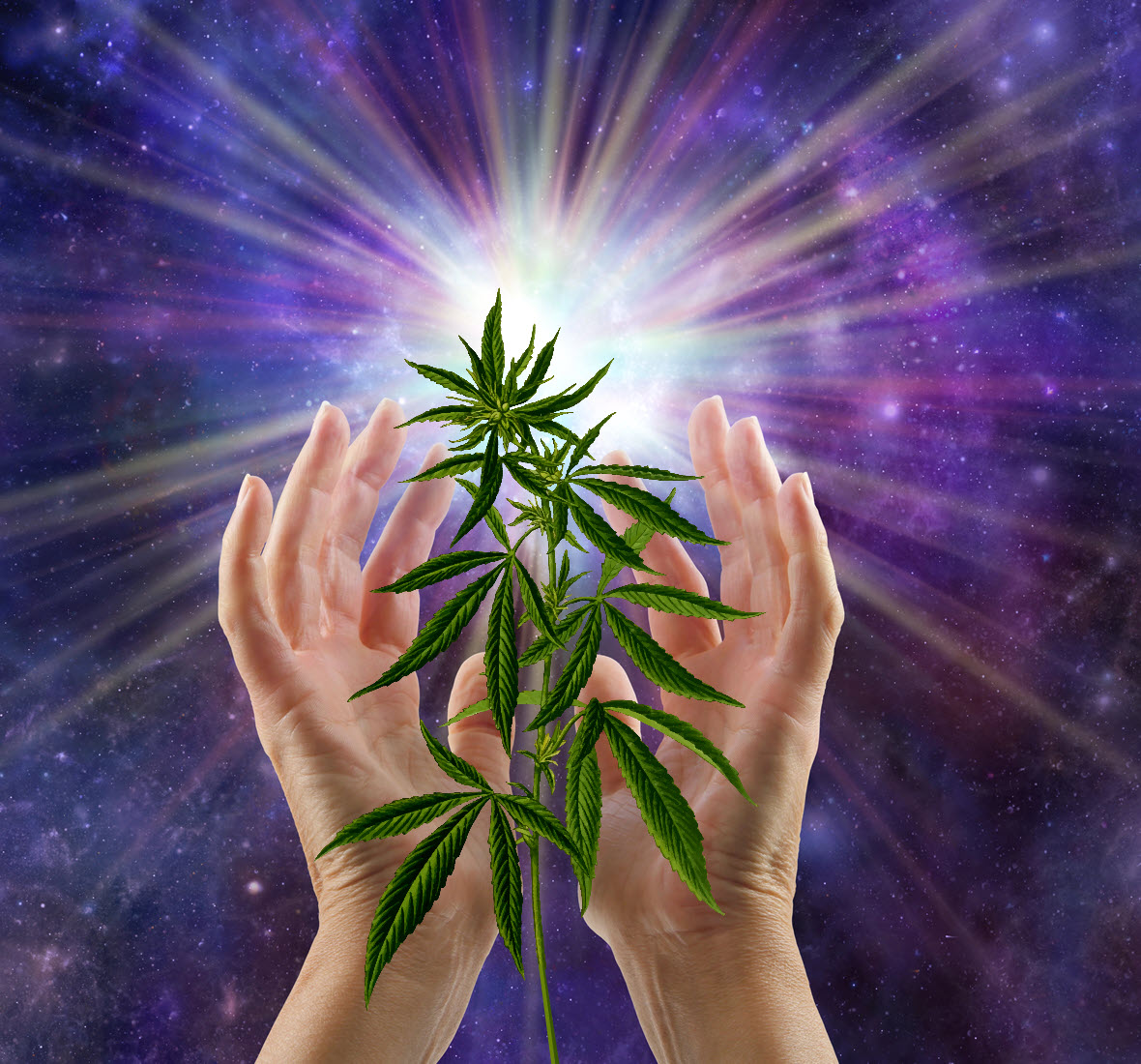
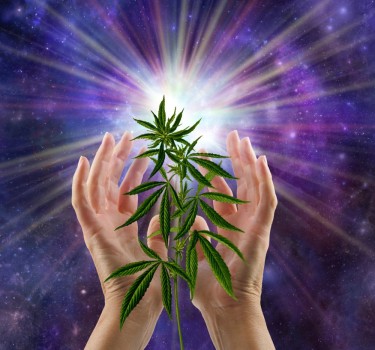
Cannabis and Spiritual Evolution – Good or Bad?
As I sat with a friend, discussing the intricate dance between cannabis use and spiritual development, I found myself reflecting on the words of Alan Watts. When asked about his own cannabis use, Watts famously quipped, “When you get the message, hang up the phone.” This simple yet profound statement has stuck with me, especially as I navigate my own journey of spiritual growth while being a cannabis user.
During our conversation, my friend posited that cannabis could be a detriment to one’s spiritual evolution, particularly if we develop a strong attachment to it. I found myself nodding along, understanding the validity of his perspective. After all, attachment is often viewed as a hindrance to spiritual progress across various philosophical and religious traditions.
Yet, as a cannabis user myself, I couldn’t help but feel that this perspective, while valuable, might not tell the whole story. While I acknowledge the potential pitfalls, I also believe that cannabis, when used mindfully, may have a place within spiritual development.
In this article, we’ll explore the complex relationship between cannabis and spiritual evolution. We’ll examine how this plant can potentially enhance our journey through life, opening doors to new perspectives and insights. But we’ll also look at the flip side – when cannabis use might become detrimental to our growth and how to recognize those moments.
As we embark on this exploration, I invite you to approach this topic with an open mind, regardless of whether you’re a cannabis user or not. Our aim is not to promote or discourage use, but rather to foster a nuanced understanding of how this plant intersects with our spiritual paths. Has cannabis sparked a relgious and spiritual awakening?
To truly understand the complex relationship between cannabis and spiritual growth, we must first consider the perspective that cannabis could potentially hinder our spiritual evolution. My friend, who isn’t opposed to cannabis use but offers a thought-provoking viewpoint, presents a compelling argument worth exploring.
The crux of the matter lies in determining when cannabis use transitions from a tool for exploration to a potential obstacle in our personal growth and spiritual journey. My friend used an intriguing metaphor to illustrate this point: imagine going to the gym and having someone else lift the weights for you. While you’re going through the motions, you’re not actually building your own strength. This analogy resonates deeply when we consider our spiritual practice.
Another apt comparison is that of a crutch. When we’re injured and unable to walk, crutches are essential for mobility, allowing us to continue our daily activities despite temporary disability. However, once we’ve healed, continuing to use crutches can actually impede our progress. The discomfort of using a healing limb stimulates blood circulation, accelerating recovery. Prolonged use of crutches post-healing can lead to dependency, ultimately reducing our mobility and strength in the long run.
This crutch analogy is particularly poignant when applied to cannabis use in spiritual practice. For many, cannabis becomes a crutch to “deal with their problems.” They rely on it as a panacea for emotional and spiritual distress, using it to navigate their inner turmoil. But this reliance may slow down or even halt personal growth. By leaning on the phytochemical relief provided by the plant, we might be avoiding the necessary work of diving deep into our own being and confronting our challenges head-on.
It’s crucial to remember that cannabis isn’t a prerequisite for achieving spiritual enlightenment. We shouldn’t need it to de-stress or access deeper meditative states. In fact, most religious and spiritual paths emphasize inward, endogenous healing as the key to spiritual enlightenment. The answers we seek often come from within, not from external sources.
In this light, cannabis can indeed become a detriment to personal and spiritual development. If you find yourself questioning whether cannabis is helping or holding you back, I strongly encourage you to meditate on this. Listen to the whispers of your soul. While the potential for cannabis to hinder spiritual growth is real, it’s important to note that this may not be true for everyone.
Ultimately, the goal of spiritual practice is to develop our inner resources, to build our spiritual “muscles,” if you will. When we rely too heavily on external aids, we risk neglecting the development of these internal capacities. The danger lies in becoming dependent on cannabis to achieve states of mind or insights that we should ideally be able to access on our own.
However, it’s essential to approach this perspective with nuance. Just as the usefulness of crutches depends on our state of healing, the impact of cannabis on our spiritual journey may vary based on our individual circumstances and the stage of our spiritual development. What might be a helpful tool at one point in our journey could become a hindrance at another.
Now, let’s flip the script and explore another perspective on cannabis and spiritual growth. To truly understand the potential benefits, we need to look at some intriguing historical examples and scientific insights.
Most people aren’t aware that Bill Wilson, the founder of Alcoholics Anonymous, didn’t strictly follow his own protocol to overcome his crippling alcohol addiction. While AA doctrine emphasizes relying on a “higher power” to conquer addiction—a concept rooted in hermetic principles of using the higher to govern the lower—what’s often left out of AA meetings is that Wilson experimented with LSD alongside Aldous Huxley. It was only after this experience that he was able to break free from his addiction.
But why did LSD help Wilson achieve this goal? The answer lies in the way psychedelics affect the brain. When you use LSD, your brain lights up, and neural pathways that aren’t typically connected suddenly form new links. This state of hyper-neuroplasticity presents a unique opportunity to reconfigure neural pathways—which is essentially what addiction is, a neurological loop where the user is stuck.
Moreover, excessive drinking often creates a barrier between the individual and their sense of the divine or Higher Self, effectively cutting off their connection to spiritual realms. Wilson’s use of LSD served to re-ignite this divine spark, allowing him to reconnect with his higher self and ultimately overcome his addiction.
Cannabis, while not as potent as LSD, works in a similar manner. It creates a unique moment of altered perspective. The rush of dopamine and the increase of phytocannabinoids in the system allows for a state of neuroplasticity, helping users step out of their habitual thought patterns and behaviors. This is why cannabis has shown promise in treating conditions like PTSD—it provides enough neuroplasticity to break free from traumatic loops.
Beyond its potential for breaking negative patterns, cannabis can also enhance spiritual awareness and deepen meditative states. For individuals who feel “cut off” from any divine connection or struggle to connect with their higher self, cannabis can act as a conduit to establish this connection. It can facilitate entry into deep meditative states, allowing for profound introspection and spiritual insights.
Many users report that cannabis helps them gain new perspectives on life, enhances their creativity, and fosters a sense of connectedness with the world around them. These experiences can be deeply spiritual, leading to personal growth and a greater understanding of one’s place in the universe.
Furthermore, the cannabinoids in cannabis interact with our body’s endocannabinoid system, which plays a crucial role in maintaining overall health and balance. By supplementing this system, cannabis can potentially help create a more harmonious state of being, which can be conducive to spiritual growth.
It’s important to note that cannabis only becomes problematic when one becomes overly attached to it, turning it into a spiritual crutch. The key is to view and use cannabis as a tool, much like how we might use coffee to wake up in the morning or meditation to center ourselves.
Reflecting on my own experience, I shared with my friend that while I consume cannabis regularly, I don’t feel an unhealthy attachment to it. I see it as a versatile tool in my spiritual and wellness toolkit. I use it to unwind in the evenings, sometimes to enhance meditation, and often as a way to replenish my endocannabinoid system, allowing me to function better overall.
This balanced approach allows me to harness the potential benefits of cannabis for spiritual growth without becoming dependent on it. It’s about using the plant consciously and intentionally, always staying aware of its effects and our relationship with it.
Moreover, for those dealing with chronic pain, anxiety, or other conditions that can hinder spiritual practice, cannabis can provide relief that allows them to engage more fully in their spiritual journey. By alleviating these physical and mental obstacles, cannabis can create space for deeper spiritual exploration.
It’s also worth considering the long history of cannabis use in various spiritual traditions around the world. From ancient Hindu sadhus to Rastafarians, many have incorporated cannabis into their spiritual practices, viewing it as a sacred plant that can facilitate communion with the divine.
While it’s crucial to be mindful of the potential pitfalls of cannabis use, it’s equally important to recognize its potential as a spiritual enhancer. When used consciously and in moderation, cannabis can be a valuable tool for breaking negative patterns, gaining new perspectives, deepening meditation, and facilitating spiritual growth. The key lies in maintaining a balanced relationship with the plant, using it as a tool for exploration and growth rather than a crutch or escape. As with any spiritual practice or tool, the intention behind its use is paramount.
So, what do we do with all of this information? How do we navigate the complex relationship between cannabis and spiritual growth?
My friend’s perspective has indeed influenced my approach. These days, I typically reserve my cannabis use for the end of the day, around 11 PM, similar to having a nightcap—a way to destress and prepare for the next day. However, I still use cannabis and personally don’t struggle with strong attachment. This is largely because I’ve invested years in personal growth work and occasionally use psychedelics, always as a tool rather than an escape.
While I agree that we shouldn’t rely on crutches when we’re healed, I also believe in using the right tool for the job. You wouldn’t try to drive a nail with your bare fists when a hammer is available. Not only is this less efficient, but it’s also likely to cause harm. You might opt for a rock instead of your fists, but it’s still less effective than using a proper tool like a hammer.
This analogy encapsulates the crucial distinction for me: is cannabis a tool or a crutch? In my personal experience, I use it as a tool. That’s why I’ve stopped using it at the beginning of the day, choosing instead to experience life’s stresses in high definition. Yet sometimes, depending on the day’s activities, I’ll roll a joint and ride the waves of euphoria to the shores of gnosis.
However, it’s vital to be a psychedelic cartographer. Don’t rely on substances to reach these states. Instead, when using them, discover the feeling, acknowledge where you are, and then find ways to return there without the aid of drugs. This is, at the very least, my current approach to psychedelics and cannabis—viewing them as tools, not crutches.
Perhaps one day I’ll “get the message and hang up the phone,” as Alan Watts suggested. But for now, I still have several nails to hammer, so I’ll continue to rely on my trusty tool belt to get the job done.
Nonetheless, this is a deeply personal decision. One must listen to the whispers of the heart to understand whether cannabis is an enhancer or a detractor in their spiritual journey. The key is to be spiritually honest with yourself and to accept whichever answer you receive.
Remember, what works for one person may not work for another. Your spiritual path is your own, and only you can truly know what aids or hinders your growth. If you choose to use cannabis as part of your spiritual practice, do so mindfully and intentionally. Regularly check in with yourself to ensure it’s still serving your highest good.
Ultimately, the goal of any spiritual practice is to foster growth, self-awareness, and connection with something greater than ourselves. Whether cannabis has a place in that journey is a decision only you can make. Trust your intuition, stay open to new insights, and above all, be kind to yourself as you navigate this complex terrain.
CANNABIS AND SPITUALITY, READ ON…
You may like
-


4 Ways Marijuana Can Help You Have A Better Thanksgiving
-


Can Big Alcohol Help The Cannabis Industry
-


California Appeals Court Rejects Marijuana Grow Permit, Citing Federal Illegality
-


Expert Lighting Tips For Successful Indoor Growing Weed
-


Acne And CBD: Exploring Alternative Dermatological Solutions
-
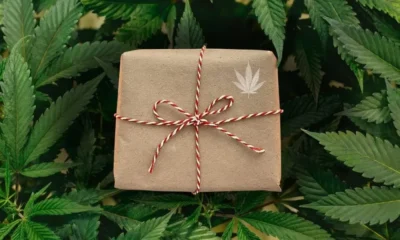

Can I Gift Marijuana This Holiday Season?
Cannabis News
California Appeals Court Rejects Marijuana Grow Permit, Citing Federal Illegality
Published
6 hours agoon
November 22, 2024By
admin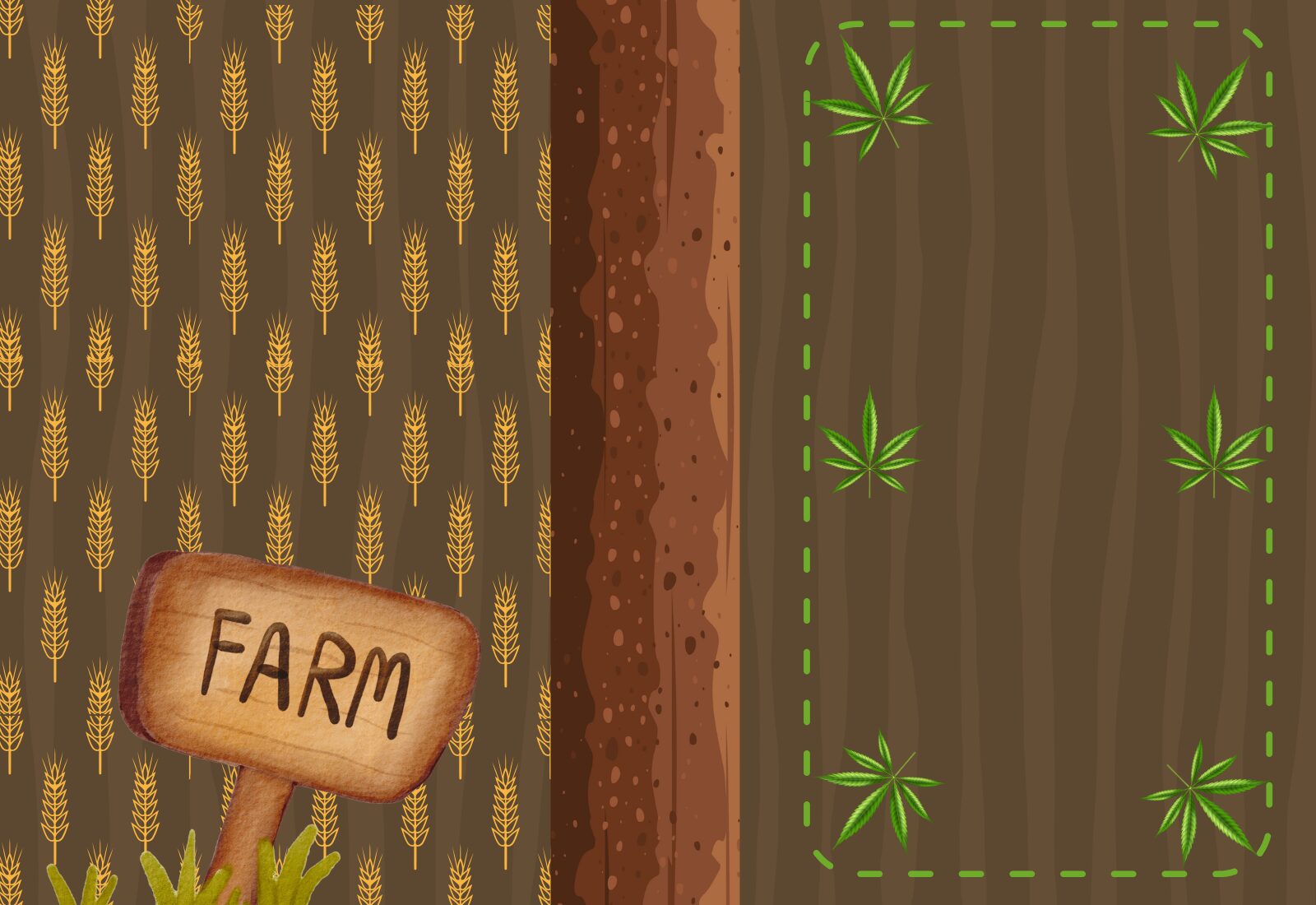
In a landmark decision that highlights the tension between state and federal cannabis laws, a California appellate court ruled on October 29th that property owners can refuse to allow the transportation of cannabis across their land via easements, even when the cannabis operation is approved by local authorities.
The Second District Court of Appeal’s unanimous decision draws attention to private property rights in a context where cannabis remains federally illegal, but state law allows licensed cultivation, distribution and sale. Presiding Justice Albert Gilbert stated, “No matter how much California voters and the Legislature might try, cannabis cultivation and transportation are illegal in California as long as it remains illegal under federal law.” JCCrandall LLC v. County of Santa Barbara, Case No. B333201, 2024 WL 4599304, Oct. 29, 2024.
Unless the California Supreme Court grants review – which I would not rule out – the decision empowers private property owners to refuse to contract with cannabis businesses, and restricts local government from approving cannabis operations that implicate the property rights of neighbors who object.
The case at hand
The dispute centered around a cannabis cultivation operation in Santa Barbara County, where JCCrandall LLC challenged a conditional use permit granted by the County to its neighbor, Santa Rita Holdings Inc. The critical issue was that Santa Rita Holdings could only access its 2.5-acre cannabis farm via an unpaved road crossing JCCrandall’s property through a pre-existing easement. JCCrandall grows oats and barley.
JCCrandall’s primary concern? It raised a number of complaints with the Santa Barbara County Supervisors about truck traffic and night operations, which did not gain traction, but in the Court of Appeal JCCrandall focused on what it claimed was potential liability associated with having federally illegal substances transported across its property, even though County regulators found that the Santa Rita operation was fully compliant with state and local laws.
Key legal findings
The appellate court’s decision hinged on several crucial points:
- Property Rights: The court emphasized that “the right to exclude others is the essence of the right of property ownership” and classified it as a fundamental vested right.
- Federal Supremacy: The panel determined that allowing cannabis transportation across private property “defies the Supremacy Clause” of the U.S. Constitution.
- State vs. Federal Law: While cannabis might be legal under California law, the court ruled that federal law’s prohibition takes precedence in this context.
California cannabis industry implications
Legal experts suggest this ruling could have far-reaching consequences for California’s cannabis industry. Section 1550.5(b) of the California Civil Code makes contracts within California involving cannabis lawful and enforceable, and Santa Rita Holdings bet the ranch on that argument. But the Court of Appeal held that the statute could not compel a landowner to allow cannabis to travel across its property on a pre-existing easement. Licensed operators may find it harder to do business because neighbors who have property rights affected by a cannabis business can object, and, under the JCCrandall ruling, local government must yield to those objections.
An example might be a cannabis dispensary that depends on access to its parking lot via an easement or is located in a shopping center where other lessees have rights to object to tenants notwithstanding the approval of the landlord. In cultivation, many cannabis farms depend on vehicular access through easements because they are remote and do not always have direct access to public thoroughfares, or they depend on water sourced from other properties pursuant to agreements made by prior owners who grew traditional crops. These neighbors might not need to show any negative impact on their property, but can argue that they could be found complicit in federally illegal activities.
I think the most problematic language in the JCCrandall ruling is the following, which might draw the attention of the California Supreme Court and cause it to grant review: “For as long as an easement is enjoyed, its mode and manner of use shall remain substantially the same as it was at the time the easement was created. The County argues the easement was used for agricultural purposes. But there is a vast difference between legal and illegal agricultural purposes.” (Emphasis added.) If California has determined that cannabis cultivation is legal – as it has – and state courts routinely enforce contracts involving cannabis, it is a pretty bold step to declare the use of a lawful pre-existing easement illegal simply because the agricultural crop is cannabis and take away easement access from Santa Rita.
Looking ahead
This decision creates new challenges for cannabis businesses in California, and will result in more disputes among neighbors. While the Biden administration has shown signs of easing federal marijuana restrictions, this ruling demonstrates that the federal-state law conflict continues to create significant legal hurdles for the cannabis industry.
California court decisions also can be persuasive authority in other states, so we might see similar litigation (and decisions) elsewhere in the country where cannabis has been legalized.
The case serves as a reminder that despite California’s progressive stance on cannabis, federal prohibition continues to cast a long shadow over the industry’s operations and development. As the cannabis landscape continues to evolve, this ruling may prompt businesses to reassess their property arrangements and local governments will certainly have to reconsider their permitting processes to give more careful consideration to objections by neighbors who claim that their property rights are implicated by cannabis operations.
Note: This post was first published earlier this month on the Alger ADR Blog.
Cannabis News
Autoimmune Conditions Are Rising Fast in American Medicine, Can Cannabis Help?
Published
1 day agoon
November 21, 2024By
admin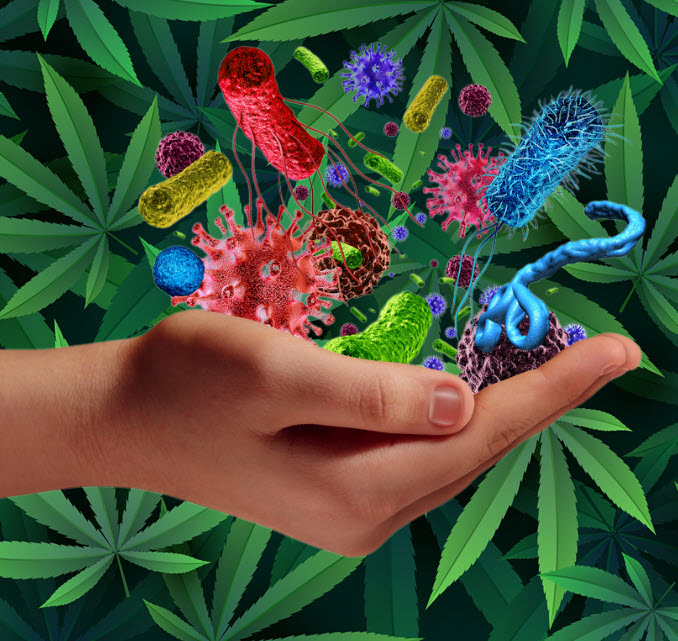
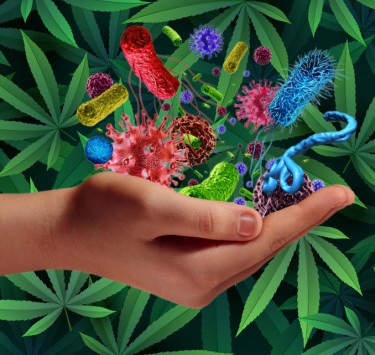
Why Are Autoimmune Conditions On The Rise? And How Cannabis Can Help
Autoimmune diseases refer to a group of medical conditions that occur as a result of the immune system attacking your own tissues.
In a normal human body, the immune system is responsible for protecting the body by producing antibodies that prevent toxins, cancer cells, and viruses from harming the body. However, when one is struck by an autoimmune disorder, the immune system is no longer able to distinguish the difference between dangerous cells and healthy cells. As a result, the healthy cells are attacked, too.
Today, we know of around 100 different kinds of autoimmune conditions. Some of the most common examples of autoimmune conditions include rheumatoid arthritis (RA), lupus, inflammatory bowel disease, celiac disease, Type 1 diabetes, multiple sclerosis (MS), and the Guillain-Barre syndrome (GBS) to name a few. Others include Graves’ disease, Hashimoto’s thyroiditis, psoriasis, and vasculitis.
According to the National Health Council, around 50 million Americans are affected by autoimmune diseases today. This is a conservative estimate, considering that several autoimmune conditions are tricky to treat and so many people go undiagnosed for long periods of time. It’s worrisome to note that there are more people developing autoimmune diseases these days, many of which have reached levels comparable to epidemics.
But cannabis can help!
How Cannabis Can Help Curb And Manage Autoimmune Diseases
Not one single cause is responsible for the alarming growth of autoimmune diseases, though there are several factors at play. While there isn’t just one cause we can point at, it’s certain the reasons lie in our environment. After all, human genetics haven’t changed significantly yet the chemicals, toxins, and pollutants in our food and everyday items have risen dramatically.
In addition, people are getting less sleep than ever; stress rates are through the roof, and people are constantly worried. There is a clear link between psychological stress and physical health as well as immunity, which is why it isn’t unusual – it’s even common – to see many autoimmune disease cases flare up after people experience severe stress caused by grief, an accident, job loss, or the death of a loved one. These highly stressful and traumatic conditions wreak havoc on the body’s immune response, causing inflammation all over the body.
Conventional treatments prescribed to treat autoimmune conditions are focused on taming inflammation; these usually include steroids but also some non-steroidal drugs. These drugs often come with unwanted side effects, but research has shown that cannabis can work with the endocannabinoid system through THC and CBD, as well as other cannabinoids, to simulate similar results. In one study for example, we can see the clear association of the endocannabinoid system for neurodegenerative and inflammatory processes seen in Multiple Sclerosis and Amyotrophic Lateral Sclerosis.
There has also been an increasing number of studies proving the efficacy of cannabis for treating several autoimmune conditions.
Cannabis For Multiple Sclerosis
Multiple sclerosis is one of the autoimmune conditions where a growing number of studies have come out supporting the therapeutic benefits of cannabis for. In a 2024 study, patients with multiple sclerosis reported several improvements in quality of life after using cannabis-based medical products (CBMPs). For the study, British investigators analyzed the impact of cannabis based medicinal products made from either oil or extracts in 141 patients who were enrolled in the UK Medical Cannabis Registry.
The researchers then analyzed the changes in patient outcomes after a month, then three and 6 months after. According to the patients themselves, they were able to sustain improvements in their mental and physical health after marijuana therapy.
“This case series demonstrates a potential association between the initiation of CBMPs and improved patient reported outcomes in sleep, anxiety, and general HRQoL [health-related quality of life] measures, over six months,” said the study authors. “Additional measures for HRQoL, including various physical and mental health subdomains, also exhibit improvements up to six months when compared to baseline,” the authors concluded.
In another study from 2023, patients with multiple sclerosis reported significant improvements in symptoms after cannabis use. For the study, researchers from the Dent Neurologic Institute in Buffalo, New York, analyzed the medical records of 141 patients with multiple sclerosis, who were also legally authorized to consume medical marijuana products. They then analyzed data from the patients after one up to 4 follow-up sessions after the initial session of cannabis therapy. Sixty-five percent of patients consumed 1:1 THC:CBD tinctures.
According to the authors: “The results of this study indicate that use of MC [medical cannabis] to alleviate symptoms of MS is largely efficacious, with improvement in pain (72 percent of patients), muscle spasticity (48 percent of patients), and sleep disturbance (40 percent of patients) frequently reported.”
“More than half of opioid users at baseline were able to either discontinue or decrease their opioid use after starting MC. The mean daily MME [morphine milligram equivalents] was significantly reduced from the initial visit (51 mg) to the last follow-up visit (40 mg). This is consistent with previous literature showing that MC legalization is associated with decreased opioid use and that MC use is associated with decreased opioid use in patients with chronic pain. These findings indicate that MC may represent an alternative analgesic to opioids for some patients,” they wrote.
Anecdotal Evidence
While more studies are needed to determine cannabis’ effect on other autoimmune conditions such as rheumatoid arthritis, we can rely on anecdotal evidence. In 2020, data from the medical journal, Rheumatology, revealed that patients who have this condition, along with those who have lupus and fibromyalgia, consume cannabis.
In fact, it was reported that marijuana was extremely common especially for patients with fibromyalgia. “In this meta-analysis, we found that one in six patients suffering from rheumatologic disease actively consumes cannabis, reducing pain reduction… A favorable effect of cannabis on pain in our meta-analysis reinforces the idea that cannabis could be used for analgesic purposes,” the authors concluded.
Conclusion
Cannabis is a safe and natural way to help prevent and treat the symptoms of autoimmune disease. It targets inflammation at its root, and is a proven natural way to help cope with stress, pain, insomnia, and inflammation all while protecting the brain. However, it’s important to ensure you medicate with clean, organic sources of marijuana.
AUTOIMMUNE AND CANNABIS, READ ON…

The U.S. Senate’s version of the Farm Bill finally landed this week. They’re calling it the Rural Prosperity and Food Security Act of 2024 (the “Senate bill”). The Senate bill follows on the House’s proposal, called the Farm, Food and National Security Act of 2024 (the “House bill”), offered in May. Neither the Senate bill nor the House bill would preempt state or Indian law regarding hemp or the regulation of hemp products. This means states and tribes will retain a lot of latitude in regulating hemp and hemp-derived products– which gets people fired up.
Aside from giving states some runway, the Senate bill and the House bill differ in key respects regarding hemp. Therefore, these august bodies must confer and reconcile their sundry proposals. That could happen in 2024, but seems more likely in 2025 when the new Congress convenes. As of this week, though, we finally have a framework.
The Senate Bill re-defines “hemp” and defines “industrial hemp”
Section 10016 of the Senate bill (“Hemp Production”) amends the definition of “hemp.” Hemp was defined in the 2018 Farm Bill and removed from the federal Controlled Substances Act (CSA), taking us on a truly wild ride. See: What Happened to Hemp? (“What Happened”). The Senate bill also gives us a definition for “industrial hemp.” Here are those definitions, with points of emphasis in bold:
(1) Hemp. The term “hemp” means (A) the plant Cannabis sativa L. and any part of that plant, including the seeds thereof and all derivatives, extracts, cannabinoids, isomers, acids, salts, and salts of isomers, whether growing or not, with a delta-9 total tetrahydrocannabinol concentration (including tetrahydrocannabinolic acid) of not more than 0.3 percent on a dry weight basis; and (B) industrial hemp.
(3) Industrial Hemp. The term “industrial hemp” means the plant Cannabis sativa L. if the harvested material (A) is only (i) the stalks of that plant, fiber produced from those stalks, or any other manufactured product, derivative, mixture, or preparation of those stalks (except cannabinoid resin extracted from those stalks); (ii) whole grain, oil, cake, nut, hull, or any other compound, manufactured product, derivative, mixture, or preparation of the seeds of that plant (except cannabinoid resin extracted from the seeds of that plant); or (iii) viable seeds of that plant produced solely for production or manufacture of any material described in clause (i) or (ii); and (B) will not be used in the manufacturing or synthesis of natural or synthetic cannabinoid products.
The new regime
Again, the definitional stuff in bold is what I want to emphasize.
First, the Senate bill keeps the THC threshold at 0.3 percent, which is an arbitrary number we’ve been advocating against for years. The Senate bill mirrors the House bill in this respect, though, so we are stuck with this, unless Ron Paul gets his way.
Second, the Senate bill keeps the 2018 Farm Bill’s total THC standard, including THCA. The House bill does this too. This was fairly predictable: in What Happened, I wrote that we could “expect the total THC standard to remain, which means that actual Delta-9 THC won’t be the only metric for calculating THC content.”
We’ve also explained on this blog that the 2018 Farm Bill and USDA rules mandate total THC testing on pre-harvest hemp batches, but do not mandate such testing on post-harvest hemp or hemp products. The Senate bill doesn’t change this paradigm, which means the “loophole” for gas station weed remains open. This proposal is a big win for opponents of the House bill’s “Miller Amendment,” which would narrow the definition of “hemp” to exclude intoxicating hemp-derived substances.
Third, the Senate bill introduces a new definition and framework for industrial hemp. The House bill does this too, albeit slightly differently. The idea here is to invite farmers to grow hemp for fiber and grain purposes, while freeing them from regulatory burdens with the Department of Agriculture and criminal exposure with the Department of Justice. More specifically, for “industrial hemp” growers, the Senate bill:
- removes background check requirements;
- instates “relaxed regulatory requirements” for sampling and inspection methodologies (which will need to be adopted by rule); and
- develops a certified seed program.
The Senate bill also makes any hemp producer ineligible to grow hemp for five years if that producer, “with a culpable mental state greater than negligence, produces a crop of hemp that is inconsistent with that license.”(Hint: use the seed program.) The proof standard here seems like it could be an issue, and even if anyone has been adjudicated as growing marijuana under the guise of hemp, Farm Bill ineligibility seems like a far-off concern.
Bottom line
The big takeaway for me is that the Senate bill leaves the door open for intoxicating hemp products, whereas the Miller Amendment to the House bill does not. Something’s gotta give. And it needs to happen soon, because we’re already long overdue. As I explained in a webinar last week, the Farm Bill deals with the nation’s entire food supply, not just hemp. Therefore, this is not like with the SAFE Banking Act, where we have a proposed law specific to cannabis that may or may not ever pass. The Farm Bill must pass, and soon.
Stay tuned and we’ll keep you updated on any major happenings. For more on this topic, check out our massive hemp and CBD archive, or these specific, recent posts:

4 Ways Marijuana Can Help You Have A Better Thanksgiving

Can Big Alcohol Help The Cannabis Industry

California Appeals Court Rejects Marijuana Grow Permit, Citing Federal Illegality

Expert Lighting Tips For Successful Indoor Growing Weed

Acne And CBD: Exploring Alternative Dermatological Solutions

Can I Gift Marijuana This Holiday Season?

The Best Cocktails For An Easy Festive Thanksgiving

420 Vacations: Planning the Perfect Weed Vacation

Can Microdosing Help Manage Holiday Family Anxiety

11 Weed Shows and Movies on Netflix Worth Watching

Distressed Cannabis Business Takeaways – Canna Law Blog™

United States: Alex Malyshev And Melinda Fellner Discuss The Intersection Of Tax And Cannabis In New Video Series – Part VI: Licensing (Video)

What you Need to Know

Drug Testing for Marijuana – The Joint Blog

NCIA Write About Their Equity Scholarship Program

It has been a wild news week – here’s how CBD and weed can help you relax

Cannabis, alcohol firm SNDL loses CA$372.4 million in 2022

A new April 20 cannabis contest includes a $40,000 purse

Your Go-To Source for Cannabis Logos and Designs

UArizona launches online cannabis compliance online course
Trending
-

 Cannabis News2 years ago
Cannabis News2 years agoDistressed Cannabis Business Takeaways – Canna Law Blog™
-

 One-Hit Wonders2 years ago
One-Hit Wonders2 years agoUnited States: Alex Malyshev And Melinda Fellner Discuss The Intersection Of Tax And Cannabis In New Video Series – Part VI: Licensing (Video)
-

 Cannabis 1012 years ago
Cannabis 1012 years agoWhat you Need to Know
-

 drug testing11 months ago
drug testing11 months agoDrug Testing for Marijuana – The Joint Blog
-

 Education2 years ago
Education2 years agoNCIA Write About Their Equity Scholarship Program
-

 Cannabis2 years ago
Cannabis2 years agoIt has been a wild news week – here’s how CBD and weed can help you relax
-

 Marijuana Business Daily2 years ago
Marijuana Business Daily2 years agoCannabis, alcohol firm SNDL loses CA$372.4 million in 2022
-

 California2 years ago
California2 years agoA new April 20 cannabis contest includes a $40,000 purse





